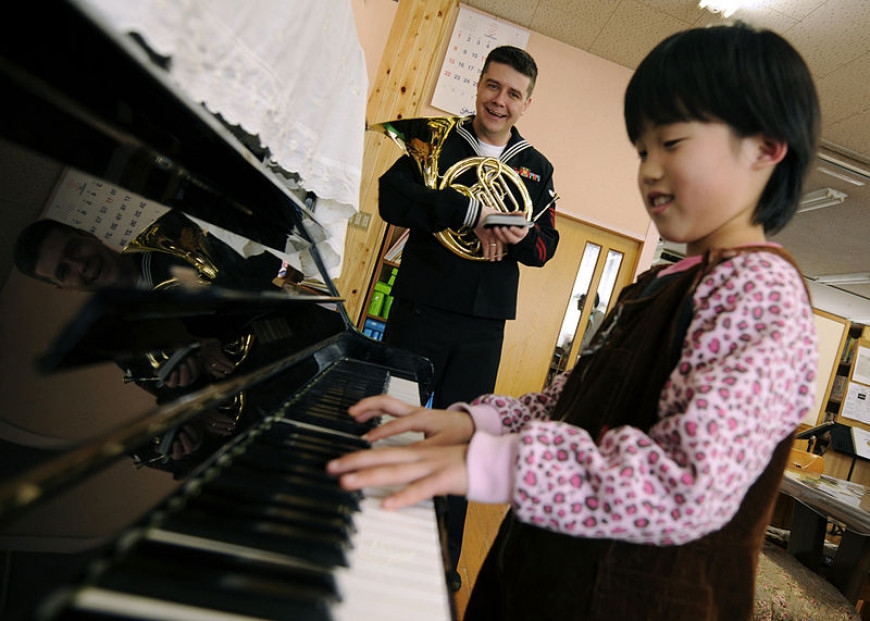Helping Children Develop A Love For Music

We recently stumbled upon NPR’s The Young Person's Guide To Making Music. It’s a really interesting collection of blog posts and one we highly recommend reading. It’s also particularly pertinent to what we’re doing over here at Lessonface, namely spreading access to top-tier music teachers across all borders, real or imaginary.
How To Choose The Right Instrument
NPR kicked things off with a post this past summer called “Finding True Love: Helping Your Kid Choose The Right Instrument.” The piece takes a look at how various musicians - such as Juilliard students or From The Top host Christopher O'Riley - got their start.
We’ve also written about how to choose your instrument. While some music learners innately know they’ll be a guitarist, pianist, or drummer, others have to take into consideration Opportunity/Fit, Cost, Upkeep, Transport, and Teacher Proximity (although we’re working to render the last category invalid).
Your first instrument is pivotal, because it can spark your interest in music or extinguish it should it not be the right fit for you. At the same time, if you have passion for music, your first instrument may be just that - your first. Chuck Wilson, for instance, plays almost a dozen instruments, and has even created his own, the trombass, an amplified, distorted trombone.
Chuck started playing the trombone in sixth grade, and clearly it was the right choice for him. “I chose it because it looks different and I've always liked being a little different,” he explained.
How To Reduce Audition Anxiety
Another great post from the series focused on audition anxiety. In it, the author writes that preparation with a private teacher is the key: “Encourage your child to plan, plan, plan. He or she should begin by going over repertoire choices with his or her private teacher. It's good to focus on pieces that are squarely within the child's comfort zone, and a teacher can help advise about particular requirements. If the audition involves learning new material, help your child map out a schedule well in advance of the big day. Cramming at the last minute isn't a great idea at school, and it's no better in music.”
We couldn’t agree more, and that’s why we spoke with several of our teachers who are Berklee alumni to put together an article on audition tips, and created an audition prep lesson category.
Singer Naomi Gillies, who not only graduated from Berklee but also made it to the top 40 on American Idol, also emphasizes preparation as the key.
“My advice would be to know your piece like the back of your hand so that you aren't worrying about lyrics and form and you can actually have a little fun and show your musical personality,” she said.
Music Practice
Perhaps the most interesting piece of the bunch was called “Getting Kids To Practice Music — Without Tears Or Tantrums.”
“Regular practicing is a path towards self-discipline that goes way beyond music — it's a skill that has hugely positive ramifications for personal fulfillment and lifetime success,” wrote the author. “(How ‘tiger mom’ is that?) But the trick is that self-motivated discipline isn't exactly first nature for most kids, so it's up to families to help create positive, engaging and fun ways to practice as a path towards self-motivation.”
The benefits of learning music are many, whether you’re an adult music student or a child, but self-discipline may be at the top. Discipline is a lot easier when you like what you’re doing, however.
So, one area the article touched on that we’ve looked into as well is keeping music practice fun. The article suggests keeping lessons focused and short at the beginning, because children aren’t exactly known for their attention spans. We’ve also found that playing with friends, multi-tasking, and trying a new instrument for a spell can be effective tricks as well.
Do you have any good suggestions for helping young people develop a love of music? Tweet us @lessonface or join in on the discussion below.
Click here to book an online lesson or here to learn more about how LessonFace works. You can also check out our blog here to read more about LessonFace and our teachers.




